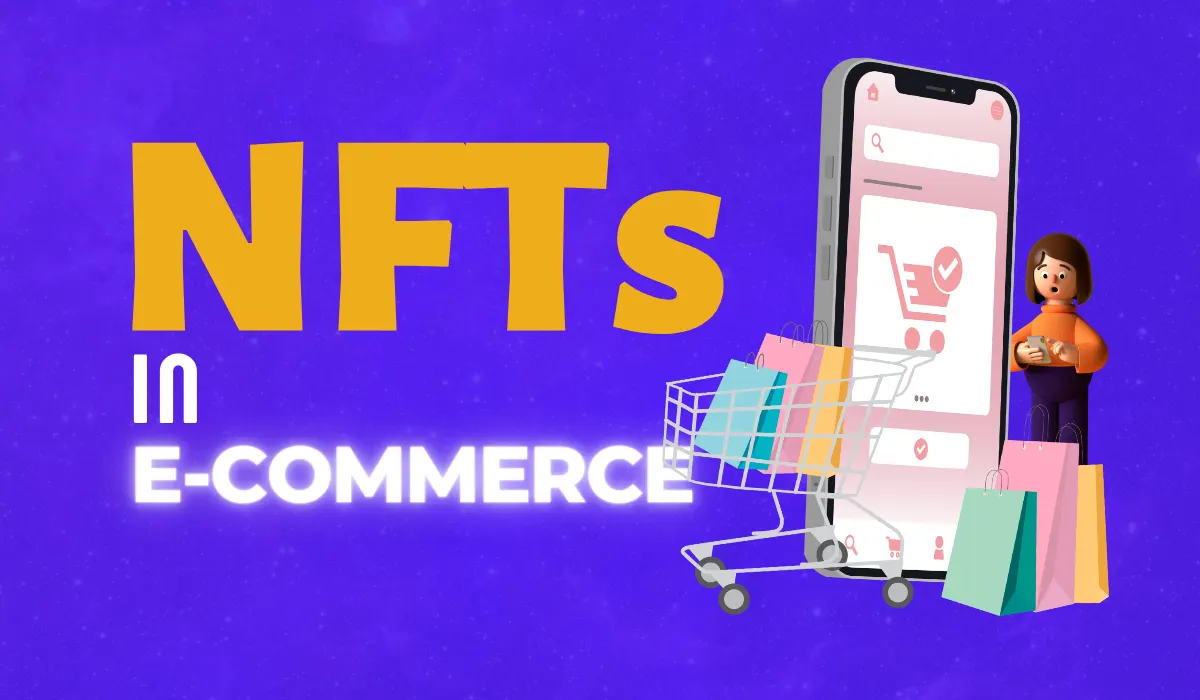Non-fungible tokens have been a game changer in the process of digitizing assets. Although the application of NFTs in various fields has been revolutionary and brought innovative changes adding to the user’s convenience, their infinite possibilities are yet to be explored and some are even beyond comprehension.
Applying NFTs to E-commerce is a part of experimenting with these digital assets and the technology they are built on.
Let us explore the potential of such an application with what we know of these two fields in the present.
Relevance of NFTs in E-commerce
E-commerce is a comparatively recent, ever-evolving landscape built to make the human experience of trading goods and services easier.
E-commerce was developed from the thought of bringing such exchanges to a virtual space without the need for an elaborate physical infrastructure to facilitate them.
The concept was made possible with that huge leap in technology, the invention of the internet. The situation is similar here as entrepreneurs and developers are considering the possibility of integrating both E-commerce and NFTs keeping their promising future in mind.

So, the question is, in what ways such an integration will reflect on E-commerce?
Ownership and Authenticity
With the introduction of NFTs, it will be easier for businesses to digitize their assets to monetize them.
The list of items could include anything from tangible commodities like clothing and art, and real estate, or intangible assets like music or in-game items.
As NFTs cannot be duplicated, this will stop fraudulent exchanges carried out with imitations, proving the legitimacy of the item and its ownership.
Customer Engagement
NFTs in e-commerce will help foster better connections with the customers by increasing the credibility of the brand as well as the products and services they sell by proving authenticity.
The blockchain technology on which NFTs are built provides a unique and dynamic experience for customers with digital collectibles or gamified elements that come with it.
Also, the fact that the assets they purchase can not only be displayed within the network but can also be traded among the members creates a sense of community that brings everyone closer together.
Creator Economy
Digitization of assets will play a significant role in creating entrepreneurship with lower capital requirements.
The advantage of not requiring a physical space, infrastructure, or even assets, will entitle individuals with unique ideas to monetize them through various means.
They could belong to a wide range of categories including artists, musicians, content creators, NFT influencers, and so on, people who couldn’t make it with traditional commercial ecosystems or intermediaries.
This even possesses the ability to transform the entire entertainment and content industries for the better, democratizing the process of revenue generation.
Loyalty Programs
Loyalty programs are part of improving customer engagement by giving them an opportunity to incentivize their loyalty in the form of Non-fungible tokens.
Instead of offering reward points and discounts like traditional e-commerce sites, the ones integrated with NFT technology can allow users to tokenize these rewards as digital assets.
Such assets can either be kept as collectibles or traded on the platform to monetize them. Such programs draw more customers to the platform while maintaining the existing customer base.
Security and Transparency
Two of the key aspects of blockchain technology and NFTs are the security and transparency they offer in transactions.
Every transaction is recorded on the virtual, immutable ledger, guaranteeing the transparency and accuracy of the whole process. This provides access to information on every single item a customer purchases, back to its source if necessary.
At the same time, the technology ensures the confidentiality of the transactions by denying access to a party outside the network.
Decentralized Ecosystems
Application of NFTs to the platform will allow decentralization of e-commerce businesses, which in turn reduces the dependence on intermediaries and cuts costs.
Reliance on such technology will reflect positively on both ends, the business as well as the customers, minimizing transaction fees related to inventory control management and payment processing.
This will allow the businesses to offer their products and services at competitive pricing to the customers, improving brand loyalty and increasing profitability.
The Bottom Line
Embracing NFT and associated technologies will be a huge step in the growth of the e-commerce industry.
Even though there is a rare possibility of the technology backfiring with an increase in scams or crimes, the current knowledge suggests that the advantages will outweigh those, expanding the horizon of the industry and taking it to a new, inspiring level.
Either way, let us be optimistic and hope for a future where these two technologies join hands, making our lives easier.
